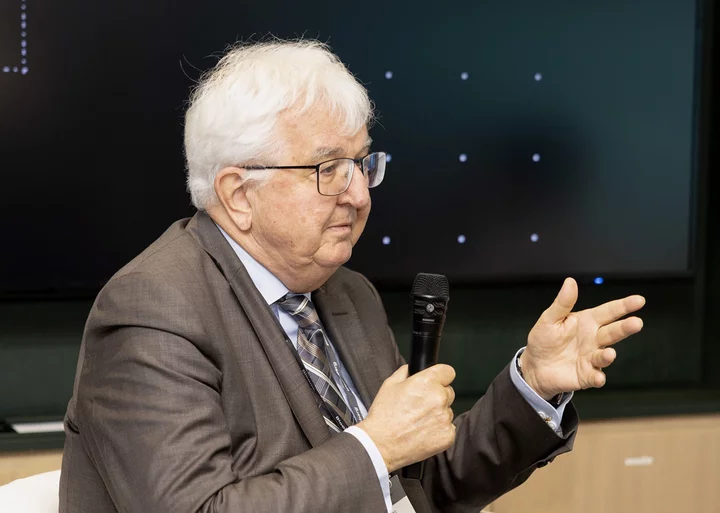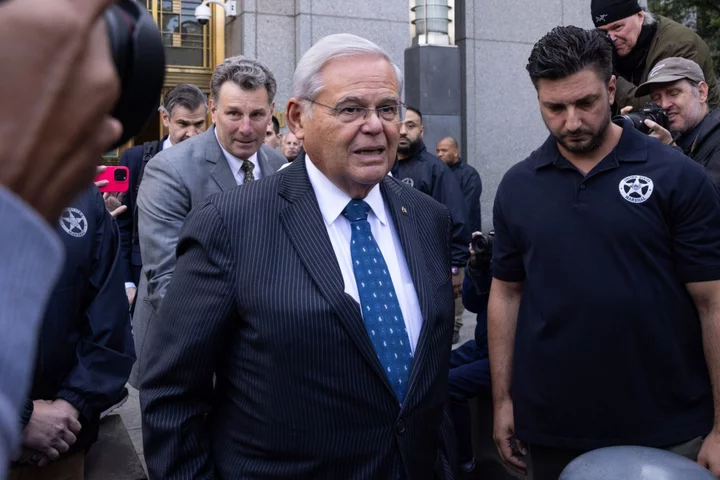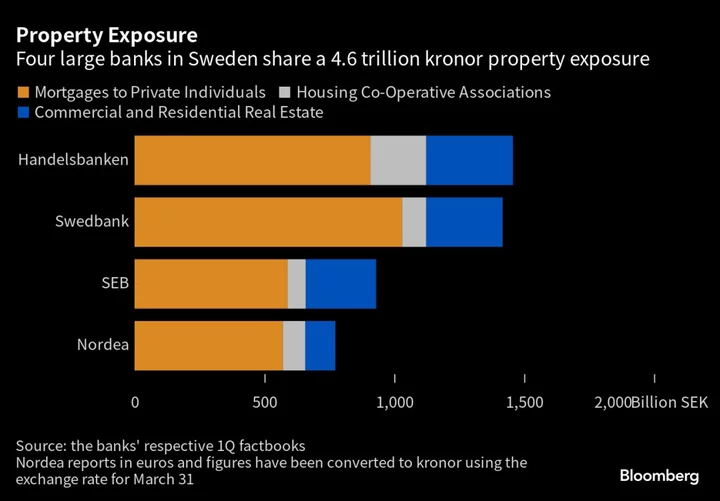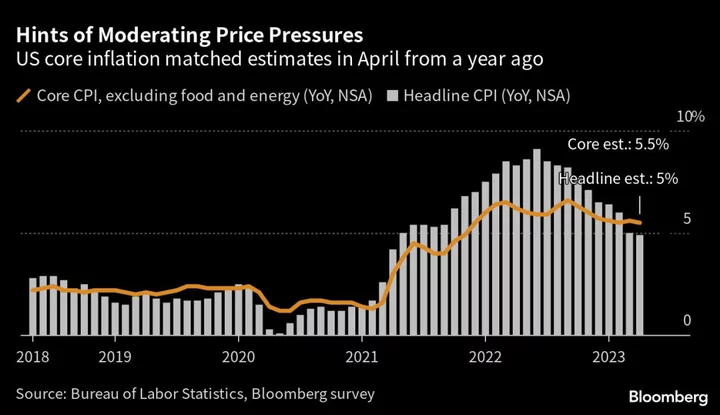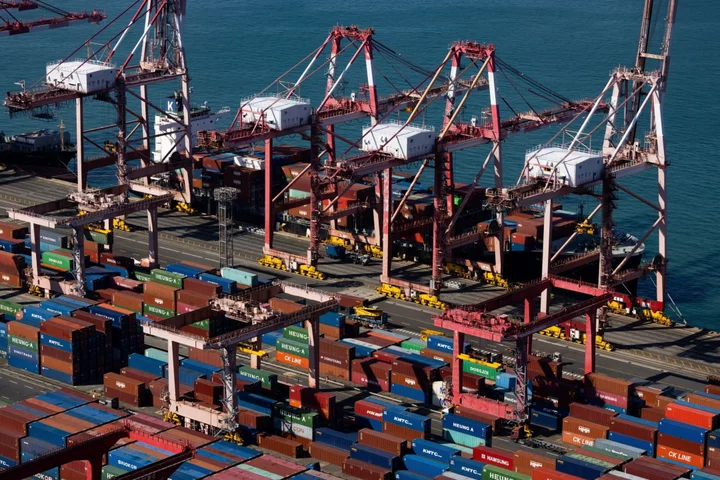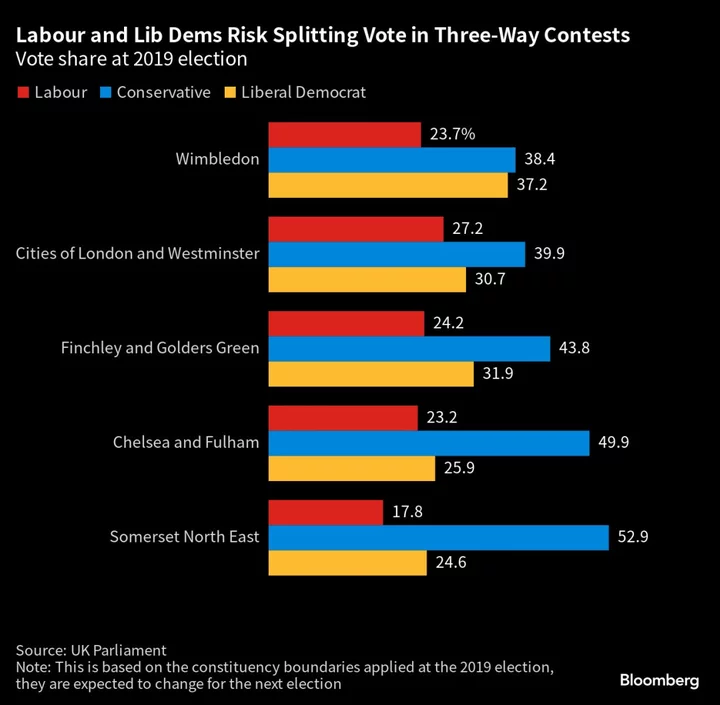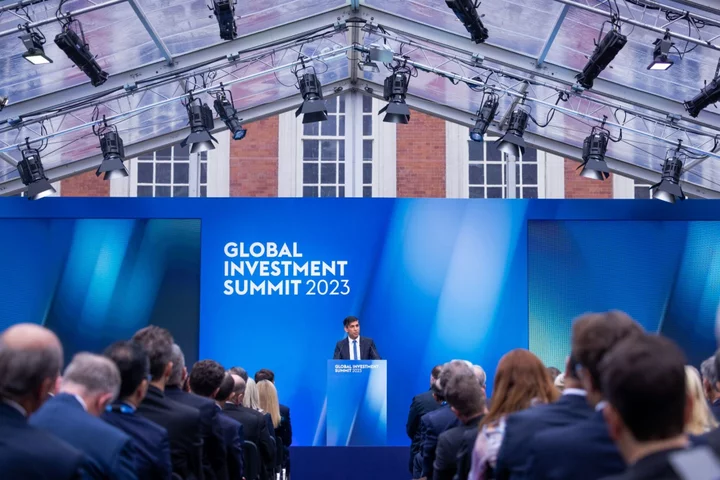It’s unclear whether the European Central Bank has lifted borrowing costs to their peak, with the persistence of inflation meaning further hikes can’t be excluded, according to Governing Council member Robert Holzmann.
The hawkish Austrian official listed threats to the retreat in euro-zone consumer prices including wage negotiations and the rising cost of oil.
“There are shocks out there which may force us to go higher,” Holzmann told a Bloomberg event Tuesday in Vienna. “Inflation needs to be kept under control and that’s what we’re here for.”
The remarks come as investors become increasingly convinced by the ECB’s pledge to keep borrowing costs restrictive for a prolonged period to ensure inflation is headed back to 2%.
ECB Executive Board member Frank Elderson echoed Holzmann’s sentiments in comments published Wednesday. Asked whether borrowing costs are at their peak, he said “not necessarily.”
“There is still a lot of uncertainty,” Elderson told Market News International. “That’s why we take these decisions meeting by meeting, on a data-dependent basis. Making any predictions about what we will do next would not be consistent with that approach.”
Some policymakers say rates — at 4% — have already reached their high point and shouldn’t be raised further as the 20-nation euro area struggles to keep its economy expanding. Others say it’s too soon to call time on the most aggressive monetary-tightening campaign in ECB history, with risks to prices — not least from oil — persisting.
“I would be happy staying up there” if it meant the economy was strong, Holzmann said.
Data this week for September will show how much of a dent the rate hikes to date have made in inflation. The first national numbers are due Thursday, with analysts anticipating a steep slowdown in Germany. Eurostat will publish readings for the euro area on Friday.
ECB President Christine Lagarde reiterated Monday that borrowing costs will remain elevated for as long as needed to tame prices — even as the economy wobbles.
For Holzmann, positive surprises to growth are possible, from China, for one. “I see the upside, he said.”
Discussing the ECB’s efforts to shrink the stash of bonds it accumulated to ease past crises, Holzmann said he favored a discussion “soon” on potentially accelerating the end of reinvestments from the pandemic portfolio.
He said, though, that he wouldn’t be in favor of outright sales of assets under the APP program.
(Updates with ECB’s Elderson starting in fifth paragraph.)

